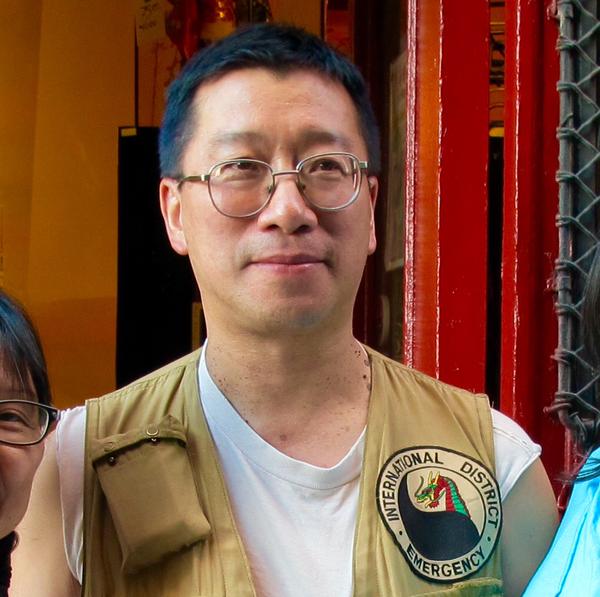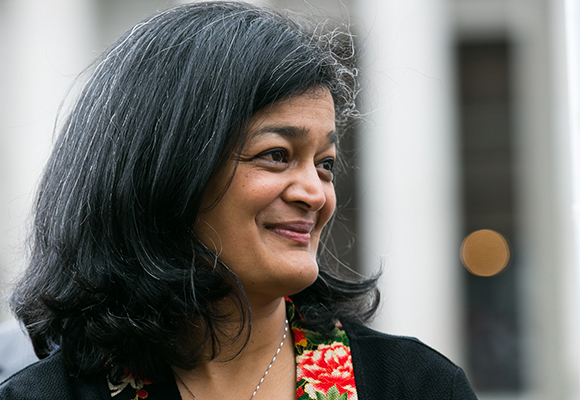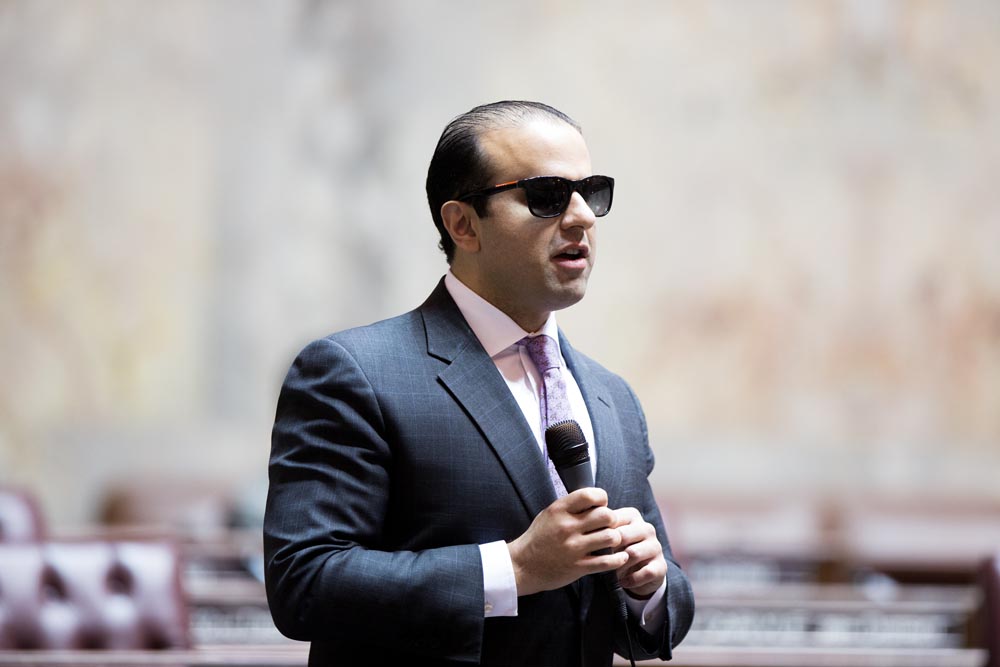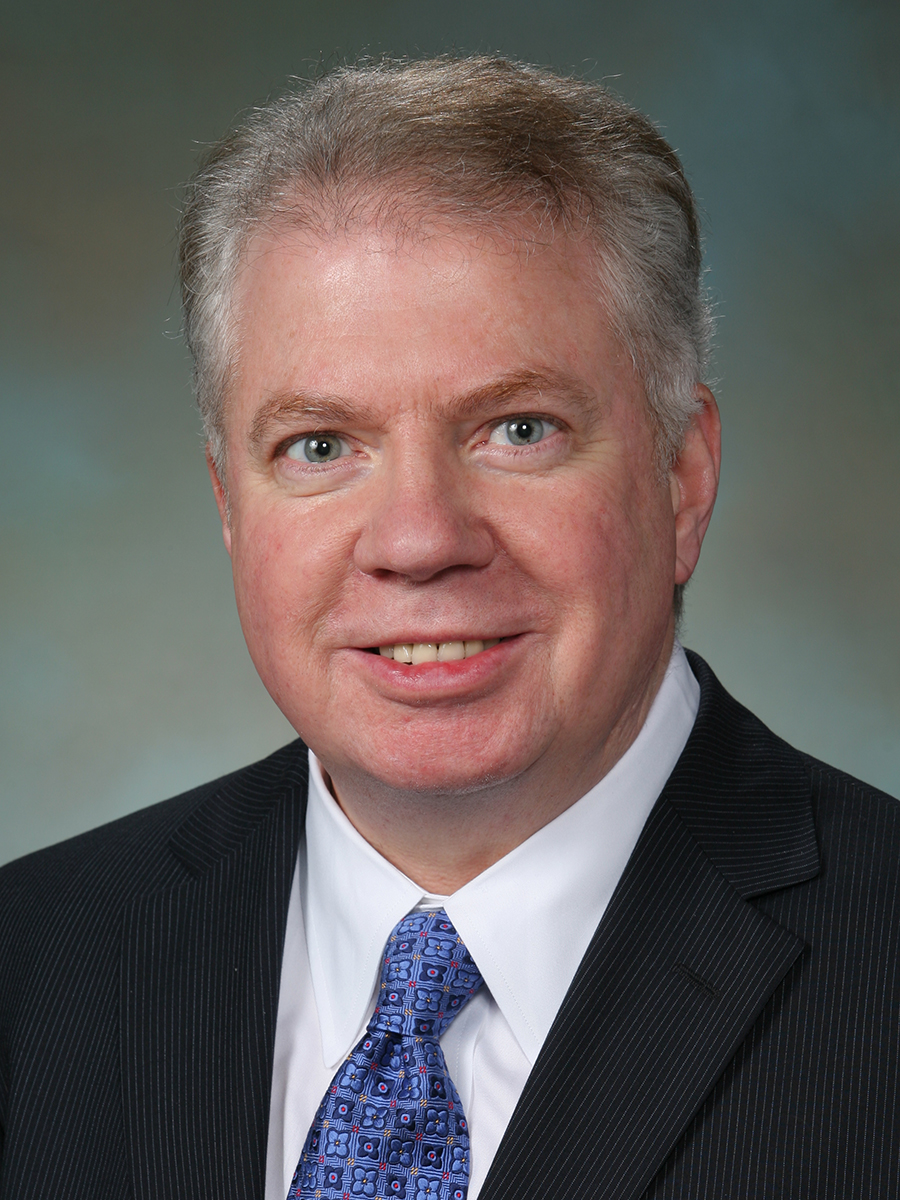Compiled by Staff
NORTHWEST ASIAN WEEKLY

Photo by Han Bui/NWAW
10. Streetcar
On Feb. 13, Seattle Mayor Ed Murray and community leaders celebrated the First Hill Streetcar’s start-of-service with a party full of lion dancing, firecrackers, and red envelopes. The streetcar line, which runs along Jackson street through the International District (ID), connects the ID to Pioneer Square and Capitol Hill, and runs every 10–15 minutes.
Voters approved the $135 million streetcar project within the massive “ST2” regional ballot measure in 2008.
Streetcar service was originally slated to be up and running in 2013, then in early 2014. The project was hampered with delays and setbacks due to mandatory testing, damaged inverters, and ironing out glitches in the street braking systems and software.

Artist’s rendering of the Publix Hotel.
9. Publix reopens
The historic Publix Hotel — which had been shut down for 13 years — reopened on Aug. 24 as a shiny new apartment tower.
The project cost a total of $40 million —which included the rehab of the building, constructing a new six-story building over the existing parking garage, and creating a total of 125 new apartments and 12,000 square feet of ground floor, commercial space.
The Publix Hotel lobby and original storefronts were fully restored with high ceilings, wood paneling, and original marble detailing. Former boarding rooms were combined to create modern studios, and one- and two-bedroom apartments with large, classic wood windows. Amenities include a penthouse community room with a kitchenette, rooftop deck with BBQ grills, outdoor lounge with views of the Seattle skyline and Elliott Bay, dog area, gym, community kitchen and party room, media lounge, and bike storage.
Twenty percent of the apartments are available to households making between 65 to 85 percent of the area’s median income, approximately $46,605 and $60,945 per year for a family of two.

Donnie Chin
8. Donnie Chin murder still unsolved
More than 50 residents and business owners in the ID gathered on Nov. 28 for the third time in a series of community meetings to discuss public safety and the investigation in the murder of International District Emergency Center (IDEC) Executive Director Donnie Chin.
Assistant Police Chief Robert Merner told the crowd that his investigators visited a “state in the Midwest” last month to interview an individual who potentially had information relative to Donnie’s case. Chin died on July 23, 2015, a victim of crossfire.
Also at that meeting, Seattle City Councilmember Bruce Harrell discussed parts of the city budget targeted at improving public safety: an additional $200,000 for more frequent (bi-weekly) garbage pickup and street cleaning, and funding in 2017 and 2018 for a CID public safety coordinator.

7. Bush Garden closed
Bush Garden Restaurant, once a hangout for the powerful, closed on Oct. 29 after operating for over 60 years in Chinatown.
The bar remains open.
The second oldest Japanese restaurant in Seattle and Washington state, Bush Garden was the first to offer Karaoke entertainment in the 1970s.
The late political guru Ruth Woo used to have a regular spot at the restaurant, wheeling and dealing with influential politicians. Hostesses recalled that Sen. Maria Cantwell and former governors Mike Lowry and Gary Locke used to visit the restaurant. The late Bob Santos, a community leader and activist, was a regular karaoke performer, packing the bar every Tuesday with friends, for decades.
Solterra, a real estate development company, purchased the building in January.

Photo by George Liu/NWAW
6. Peter Liang Seattle protest
More than 500 people showed up at a rally in February to protest the conviction of 28-year-old New York Police Department (NYPD) officer Peter Liang, who shot and killed an unarmed Black man, Akai Gurley, also 28.
There was also a counter-rally aligned with the Black Lives Matter movement. Gurley supporters, many of whom are Black, have invoked images of slavery and racism for hundreds of years. Liang supporters, many of whom are Chinese, have spoken of similar history of racism.
Local Chinese American community representatives spoke during the rally — and a group of about 10 Gurley supporters pushed their way through the crowd and onto the stage. A struggle to gain control of the microphone quickly ensued. Eventually, there was a compromise and the counter-ralliers spoke for five minutes. Both groups shouted, “We want justice.”

Dr. Shouan Pan
5. New chancellor for Seattle Colleges
In a controversial move, Dr. Shouan Pan was selected as the new chancellor for Seattle Colleges. Pan beat out Mark Mitsui, former president of North Seattle College.
Some Asian community members were surprised that the trustees didn’t pick Mitsui, who is also President Obama’s deputy secretary of education.
Pan came from Mesa Community College in Mesa, Ariz., and has over 25 years of teaching and administrative experience in higher education.
Born and raised in Mainland China, Pan immigrated to the United States in 1985. He earned a Doctor of Philosophy in Higher Education from Iowa State University, a Master of Education in College Student Personnel from Colorado State University, and a Bachelor of Arts degree in English from China’s Hefei Polytechnic University. Pan’s wife is from Taiwan. The couple has two grown sons.
Pan replaced Chancellor Jill Wakefield, who retired in June.

Ruth Woo (Photo by George Liu/NWAW)
4. Ruth Woo
The political mentor to people like former Governor Gary Locke, state Rep. Sharon Tomiko Santos, former King County Executive Ron Sims, and Supreme Court Justice Mary Yu, died on July 13 at the age of 89.
Well known in the Asian American community, Ruth got her first taste of politics when she worked for Seattle mayors Gordon S. Clinton and Dorm Braman.
She met her husband Ben Woo in 1966 at a New Year’s Eve dinner party. They quickly hit it off and were together for nine years before Ben popped the question and Ruth accepted in 1975. Ben Woo died from heart failure at age 84.

Pramila Jayapal
3. Pramila & Cyrus
Pramila Jayapal became the first Indian American woman elected to the U.S. House of Representatives. Jayapal, who was endorsed by former presidential candidate Sen. Bernie Sanders, will fill the seat vacated by retiring Rep. Jim McDermott in Washington’s 7th Congressional District.

Cyrus Habib
Cyrus Habib is our state’s next lieutenant governor — he will be the nation’s highest-ranking Iranian American elected official.
Habib’s parents emigrated from Iran, and Habib overcame childhood blindness to become a lawyer and legislator. He replaces Brad Owen, who has served as lieutenant governor for 20 years.

Mayor Ed Murray
2. Homeless camps
ID residents and business owners and other community members, packed the house at a Sept. 6 Seattle City Council meeting. Councilmembers Mike O’Brien, Lisa Herbold, Rob Johnson, and Kshama Sawant introduced an ordinance to address the city’s protocols on cleaning up homeless encampments. The “30-day” legislation proposed that the city must wait 30 days before doing a sweep.
During public comment, representatives from the ID opposed to the legislation said they have seen an increase in assaults, robberies, drug dealing, and prostitution, as well as garbage, urine, feces, used condoms, and used hypodermic needles piling up on the streets.
On Dec. 1, Seattle Mayor Ed Murray announced three of the four sites where he wants to place new, authorized homeless encampments of tents and tiny houses.
With this plan, Murray wants to put an end to the “30-day” legislation.

Proclamation of Bob Santos Day in Seattle by King County (April 22, 2006).
1. Bob Santos
Long-time Seattle community leader “Uncle” Bob Santos died on Aug. 27.
Over 2,000 people gathered at the WaMu Theater at CenturyLink Field on Sept. 23 for a celebration and in remembrance of Santos.
Born in Seattle to a Filipino immigrant father and a Native American/Filipino mother, Santos served in the U.S. Marines Corps in the 1950s and he became involved with Seattle’s civil rights movement in the 1960s.
He was one of the Gang of Four, also known as the Four Amigos — a group of racially diverse friends who hung out, sang karaoke, and fought injustice.
Santos also served as the executive director of Inter*Im from 1972 to 1989, and he was the regional director of the Department of Housing and Urban Development in 1994.
Bob Santos was 82 years old.
Staff can be reached at info@nwasianweekly.com.



